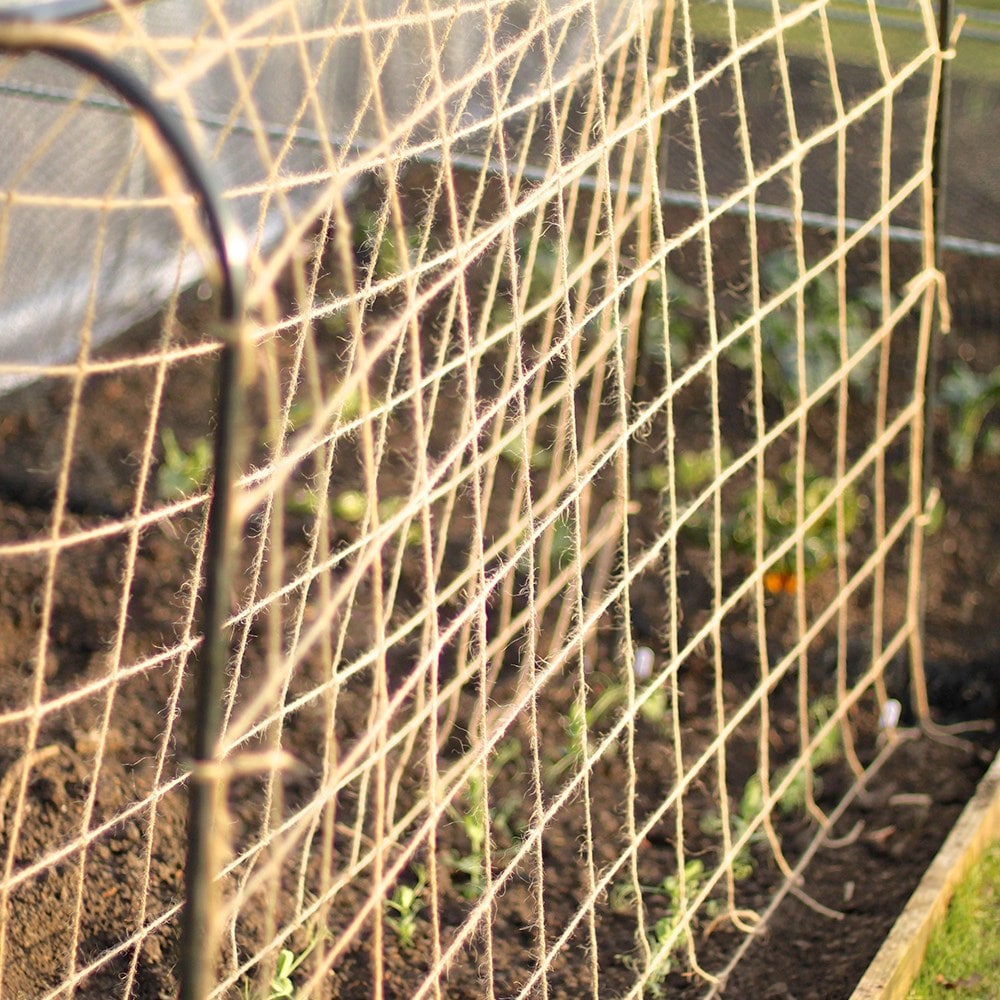- June 28, 2024
- Posted by: wellcoindustries
- Categories: Erosion Control, Jute Mesh
Introduction
In recent years, there has been a significant shift towards sustainable gardening practices as more people recognize the importance of eco-friendly solutions. One such solution that has gained popularity is jute netting for gardens. This versatile and biodegradable material offers numerous benefits for both plants and soil, making it an ideal choice for environmentally conscious gardeners. In this article, we will explore the various advantages of using jute netting in your garden and provide practical tips for its effective use.

What is Jute Netting?
Jute netting is made from the natural fibers of the jute plant, which is primarily grown in regions with high humidity, such as India and Bangladesh. Known for its strength and durability, jute is spun into coarse threads and woven into netting. This netting is then used in various agricultural and horticultural applications due to its biodegradability and eco-friendly properties. Jute netting is a sustainable alternative to synthetic materials, offering gardeners a green solution for various gardening needs.
Environmental Benefits of Jute Netting
One of the primary reasons gardeners opt for jute netting is its environmental benefits. Unlike plastic or synthetic netting, jute netting is fully biodegradable. This means that it breaks down naturally in the soil, leaving no harmful residues. By reducing the reliance on plastic, gardeners can contribute to the reduction of plastic pollution, a significant environmental issue.
Additionally, jute netting enhances soil health and structure. As it decomposes, it adds organic matter to the soil, improving its fertility and water retention capabilities. This natural process helps create a healthier growing environment for plants, leading to stronger and more resilient gardens.
Practical Uses of Jute Netting in the Garden
Jute netting can be utilized in various ways to improve garden health and productivity:
- Erosion Control and Soil Stabilization: Jute netting is excellent for preventing soil erosion on slopes and hillsides. It holds the soil in place, allowing vegetation to establish roots and stabilize the area.
- Supporting Climbing Plants and Vines: Gardeners can use jute netting to support climbing plants such as beans, peas, and cucumbers. The netting provides a sturdy framework for these plants to grow, ensuring they receive adequate sunlight and air circulation.
- Mulching and Weed Control: When used as a mulch, jute netting helps suppress weed growth and retain soil moisture. It acts as a protective layer, reducing the need for chemical herbicides and conserving water.
Advantages for Gardeners
Jute netting offers several practical advantages for gardeners:
- Easy Installation and Maintenance: Jute netting is lightweight and easy to handle. It can be cut to size and installed quickly, making it a convenient choice for gardeners of all skill levels.
- Cost-Effectiveness and Availability: Jute netting is widely available and affordable, making it an accessible option for gardeners looking to implement sustainable practices without breaking the bank.
- Enhancing Garden Aesthetics: The natural look of jute netting blends seamlessly into garden landscapes, enhancing the overall aesthetic appeal of the garden.
How to Use Jute Netting Effectively
To maximize the benefits of jute netting, follow these tips:
- Select the Right Type: Choose the appropriate mesh size and strength based on your gardening needs. Thicker netting is ideal for heavy-duty applications, while finer mesh is suitable for delicate plants.
- Installation Guide: Lay the netting over the desired area and secure it with stakes or pegs. Ensure it is taut and well-anchored to prevent movement.
- Maintenance Tips: Regularly check the netting for damage or wear and replace it as needed. As jute netting is biodegradable, it will naturally break down over time, so plan for periodic replacements.
Conclusion
Jute netting is a versatile and eco-friendly solution that offers numerous benefits for gardeners. From improving soil health to supporting plant growth and controlling erosion, its applications are diverse and effective. By adopting jute netting, gardeners can contribute to sustainable practices while enjoying a healthier and more productive garden. Start integrating jute netting into your gardening routine today and experience the positive impact on your plants and the environment.
By incorporating jute netting, you take a significant step towards sustainable gardening and a greener planet. Happy gardening!
